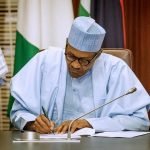A long-awaited report by the Office of the UN High Commissioner for Human Rights (OHCHR) into what China refers to as the Xinjiang Uyghur Autonomous Region (XUAR) has concluded that “serious human rights violations” against the Uyghur and “other predominantly Muslim communities” have been committed.
The Uyghurs are the largest minority ethnic group in China’s north-western province of Xinjiang. China has been accused of committing crimes against humanity and possibly genocide against the Uyghur population and other mostly-Muslim ethnic groups in the north-western region of Xinjiang, claims China have denied.
But a report published on Wednesday, August 31 in the wake of the visit by UN High Commissioner of Human Rights, Michelle Bachelet in May, said that “allegations of patterns of torture, or ill-treatment, including forced medical treatment and adverse conditions of detention, are credible, as are allegations of individual incidents of sexual and gender-based violence.”
In a strongly-worded assessment at the end of the report released Wednesday,, OHCHR said that the extent of arbitrary detentions against Uyghur and others, in context of “restrictions and deprivation more generally of fundamental rights, enjoyed individually and collectively, may constitute international crimes, in particular crimes against humanity.”

The UN rights office said that Wednesday’s report was “based on a rigorous review of documentary material currently available to the Office, with its credibility assessed in accordance with standard human rights methodology.
“Particular attention was given to the Government’s own laws, policies, data and statements. The Office also requested information and engaged in dialogue and technical exchanges with China throughout the process.”
The report was published on Ms. Bachelet’s final day of her four-year term in office.
It says that the violations have taken place in the context of the Chinese Government’s assertion that it is targeting terrorists among the Uyghur minority with a counter-extremism strategy that involves the use of so-called Vocational Educational and Training Centres (VETCs), or re-education camps.
OHCHR said that the Government policy in recent years in Xinjiang has “led to interlocking patterns of severe and undue restrictions on a wide range of human rights.”
Even if the VETC system has as China says, “been reduced in scope or wound up”, said OHCHR, “the laws and policies that underpin it remain in place”, leading to an increased use of imprisonment.
The systems of arbitrary detention and related patterns of abuse since 2017, said OHCHR, “come against the backdrop of broader discrimination” against Uyghur and other minorities.
“This has included far-reaching, arbitrary and discriminatory restrictions on human rights and fundamental freedoms, in violation of international laws and standards”, including restrictions on religious freedom and the rights to privacy and movement.
Furthermore, the report said that Chinese Government policies in the region have “transcended borders”, separating families, “severing” contacts, producing “patterns of intimidations and threats” against the wider Uyghur diaspora who have spoken out about conditions at home.
OHCHR said that the Chinese Government “holds the primary duty to ensure that all laws and policies are brought into compliance with international human rights law and to promptly investigate any allegations of human rights violations, to ensure accountability for perpetrators, and to provide redress to victims.”
In a long and detailed response to the report, the Chinese Government said in conclusion, that authorities in the Xinjiang region operate on the principle that everyone is equal before the law, “and the accusation that its policy is ‘based on discrimination’ is groundless.”
China said that its counter-terrorism and “de-radicalization efforts” in the region, had been conducted according to “the rule of law” and by no means add up to “suppression of ethnic minorities.”
On the issue of the camps, Beijing responded that the VETCs are “learning facilities established in accordance with law intended for de-radicalization” and not “concentration camps”.
“The lawful rights and interests of workers of all ethnic groups in Xinjiang are protected and there is no such thing as ‘forced labour’”, China’s statement said, adding that there had been no “massive violation of rights”.
The statement calls on the international community to be “clear-eyed about the truth” of its counter-terrorism campaign in the region, and “see through the clumsy performances and malicious motives of anti-China forces in the US and the West, who attempt to use Xinjiang to contain China.”
The Chines government said instead, the UN and other international organizations, should investigate “the human rights disasters caused, and numerous crimes committed, by the US and some other Western countries, both at home and abroad.”






